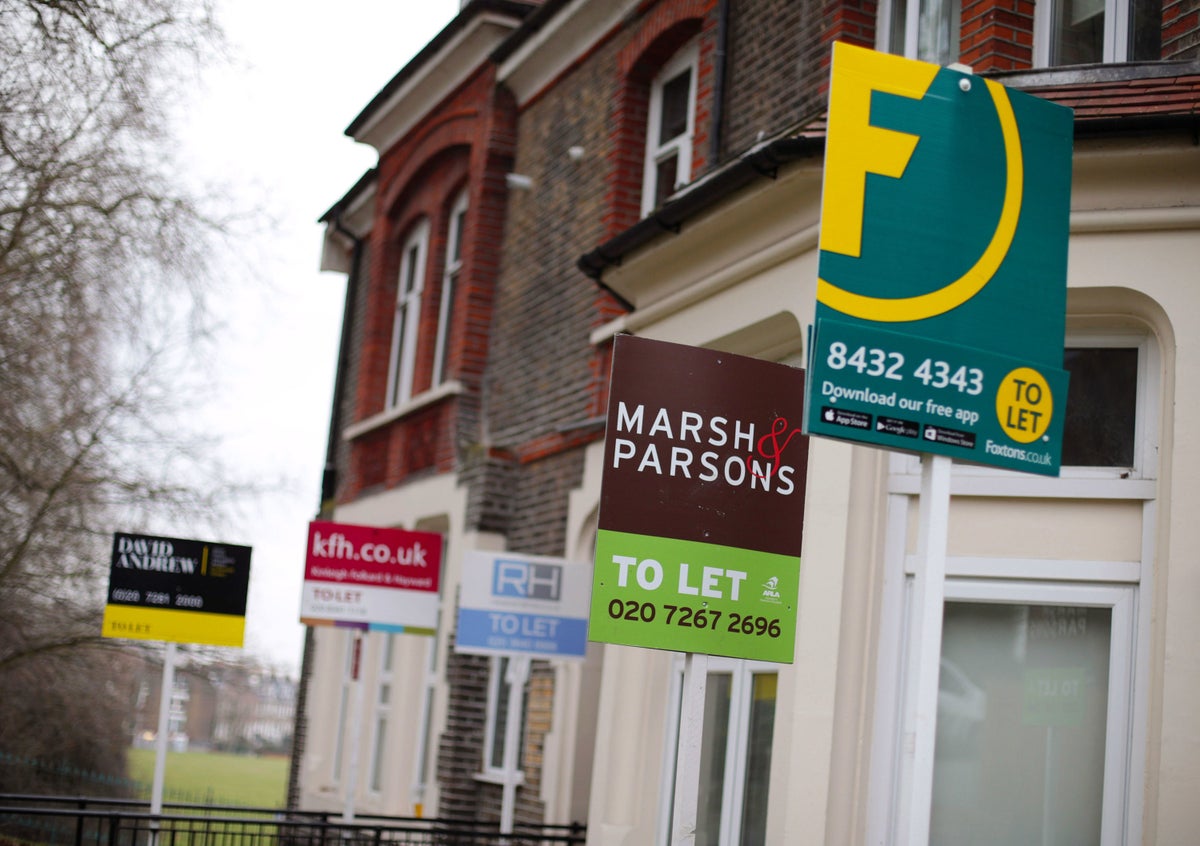
Tenants have just been hit with their highest increase in rent in at least a decade, according to a new report.
Estate agents Hamptons said the cost of rent on new tenancies rose 10.2 per cent year-on-year culminating in November being the most expensive month for renters in years.
It estimates £85billion was spent on rent in the last 12 months meaning the UK’s total rental bill has more than doubled since 2010 when tenants forked out just over £40 billion as high house prices made it difficult for young adults to get on to the property ladder.
The average rent on a newly-let home in Britain rose to £1,348 in November, up by 10.2 per cent or £125 on the same month last year. It makes it the seventh double-digit increase in the last year, as well as the highest since 2013.
Higher interest rates have meant more people are renting than ever before— (EPA)
London was the worst affected with rents rising faster than anywhere else in the country. The average monthly cost of newly-let properties in the inner capital has risen by 13.2 per cent in the last 12 months to reach £3,174. Greater London was second worst affected with rents rising by 11.8 per cent.
The east of England was the worst affected in the rest of the country with rents going up by 11.7 per cent to £1,263, while the south west region appears to be the least affected as rents increased by 5.1 per cent compared to last year, going up to £1,162.
Hamptons suggest the increase is because of more people renting than ever before, they put the figure at 25 per cent more households compared with the past. They also suggested that a shortage in rental properties could also play a factor.
“Tenants across Great Britain paid a record £85.6bn in rent in 2023, equivalent to the total value of all homes sold in London last year,” Aneisha Beveridge, head of research at Hamptons told The Guardian.
Higher interest rates also mean that more millennials are renting due to difficulties getting on to the housing ladder she added.
“This is why the millennial rent bill has risen over the last few years, at a time when it might have been expected to fall,” she said. “With the rate at which millennials climb on to the housing ladder slowing, they’re starting their own families and renting larger, more expensive homes which is pushing up the amount of rent they pay.”







